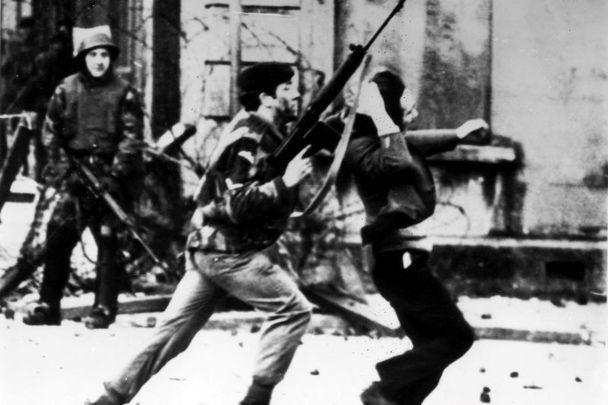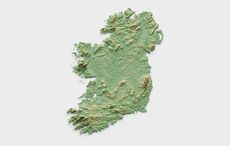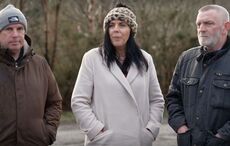Northern Ireland’s Public Prosecution Service (PPS) announced on Friday, April 19 that it will not to prosecute 16 individuals in relation to allegations of false evidence relating to the Bloody Sunday Inquiry.
The PPS said in a statement on Friday that the Police Service of Northern Ireland (PSNI) previously submitted an investigation file to the PPS in relation to allegations of murder and attempted murder on Bloody Sunday.
Those reported included former soldiers and alleged members of the Official IRA and a decision to prosecute one soldier, known as Soldier F, issued in 2019.
At the time, the PPS explained that consideration would also then be given as to whether the Test for Prosecution was met in respect of allegations that those reported had given false evidence in connection with the Bloody Sunday Inquiry.
The prosecution team, which included senior independent counsel, has now carefully considered all the available evidence in the investigation file and the content of the Report of the Bloody Sunday Inquiry in respect of allegations of the giving of false evidence.
The prosecution team has determined that the available evidence is insufficient to provide a reasonable prospect of conviction of any suspect considered, which include 15 former soldiers and one former alleged member of the Official IRA.
PPS Senior Public Prosecutor John O’Neill said: “All decisions on whether or not to prosecute are taken by independently and impartially applying the Test for Prosecution.
"The standard of proof needed for a criminal prosecution is high. For a conviction, the prosecution must establish beyond a reasonable doubt, through available and admissible evidence, the commission of a criminal offence by the suspect.
“After careful consideration, it has been concluded that the available evidence in this case is insufficient to provide a reasonable prospect of obtaining a conviction of any suspect for offences in relation to the giving of false evidence.
“The decision making involved the consideration of a vast amount of material. Consideration of the allegations of false evidence presented particularly complex evidential and legal issues, all of which were thoroughly analysed by the prosecution team.
“Three particular issues arose. Firstly, although the Bloody Sunday Inquiry may have rejected the evidence of individuals, it did not always express those findings in terms amounting to the criminal standard of proof. That is the standard which the PPS must consider.
"Secondly, many of the findings related to the rejection of accounts given by former soldiers in 1972. The PPS has concluded that, for a number of legal reasons, those accounts from 1972 would not be admissible in criminal proceedings today.
"Thirdly, the full amount of evidence upon which the Bloody Sunday Inquiry based its findings is not generally available to the prosecution today. Issues arise in respect of the admissibility of evidence and its availability, since not all witnesses who provided evidence to the Inquiry provided witness statements to the PSNI.
“I wish to make clear that these decisions not to prosecute in no way undermine the findings of the Bloody Sunday Inquiry that those killed or injured were not posing a threat to any of the soldiers.
“We acknowledge that these prosecutorial decisions will be disappointing to the victims and families involved, and that this may be another difficult day for them. We have written to them to explain in detail the reasons for the decisions. We would like to provide assurance that these decisions were taken impartially, independently and only after the most thorough and careful consideration of all available evidence and the relevant legal issues.”
Ciarán Shiels of Madden & Finucane, the Belfast law firm that represents the majority of the families of the people murdered and the people wounded at the Bloody Sunday, said in a statement that the Bloody Sunday families are "very disappointed" but "certainly not fooled" by the PPS decision.
Shiels said: “Anyone who closely observed the evidence given at the Bloody Sunday Inquiry will know that members of 1 Para, and indeed senior military officers in command positions within the British Army in 1972, both individually and collectively, perverted the course of justice by concealing the criminal behaviour of their colleagues in Support Company of 1 Para, thereby ensuring that they would evade prosecution for their crimes.
“Those who gave dishonest evidence on oath also committed perjury and were clearly outside the scope of the assurance against self incrimination provided by the Attorney General at the outset of the Inquiry, which was designed to facilitate the provision of truthful evidence to the Inquiry to assist that Inquiry to reach its proper findings.
“A major cause for concern arose last week when police informed the families of the persons referred to the PPS for prosecution and not one officer in a position of command on Bloody Sunday, in particular Captain Mike Jackson, featured. The families made serious and detailed allegations in relation to Mike Jackson’s conduct on Bloody Sunday. He had personally interviewed those who admitted firing live rounds in the rear of his APC before the Paras had even departed the Bogside and was recalled to the Bloody Sunday Inquiry to explain omissions in his evidence. Jackson was the chief architect and puppeteer in relation to the British Army’s cover up on Bloody Sunday, yet a file does not appear to have been submitted in relation to him.
“It is of course regrettable that this decision has been communicated to us only today, some 14 years after the Inquiry’s unequivocal findings, but less than two weeks before the effective enactment date of the morally bankrupt Legacy legislation designed specifically to allow British army veterans to escape justice for its criminal actions in the north of Ireland.
“We will carefully consider the reasons we have received today and do not rule out the prospect of further legal action.”
John Kelly, whose 17-year-old brother Michael was murdered on Bloody Sunday, said on behalf of the Bloody Sunday families and wounded: “The families of Bloody Sunday who sit here today disappointed and perplexed by this decision not to prosecute a single soldier for perjury ask themselves rhetorically: 'Why is it that the people of Derry cannot forget the events of Bloody Sunday, yet the Parachute Regiment, who caused all of the deaths and injury on that day, apparently cannot recall it?’
“The answer to this question is quite simple but painfully obvious.
“The British Army lied its way through the conflict in the north.
“Accountability was never an option.
“And it is clear from the events of Bloody Sunday that killing unarmed civilians and lying about the circumstances of those murders never operated as a bar to individual promotions for soldiers, but in fact helped endear themselves to their superior officers and authorities.
“We consider that today’s ruling by the PPS is an affront to the rule of law and a continuation of the injustice that was perpetrated on Bloody Sunday.”




Comments